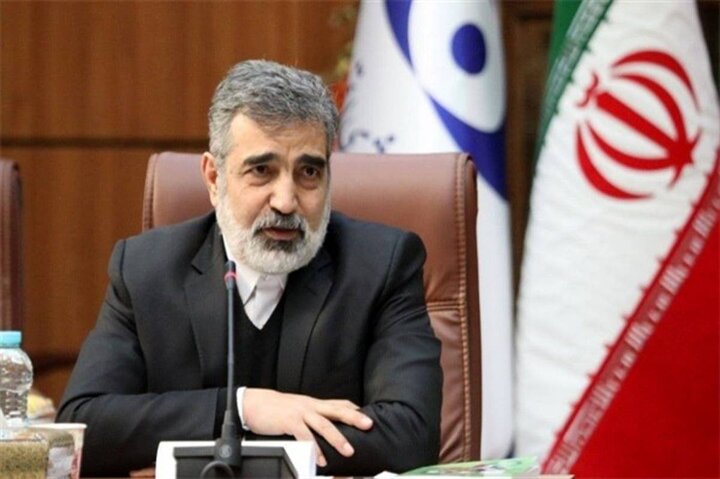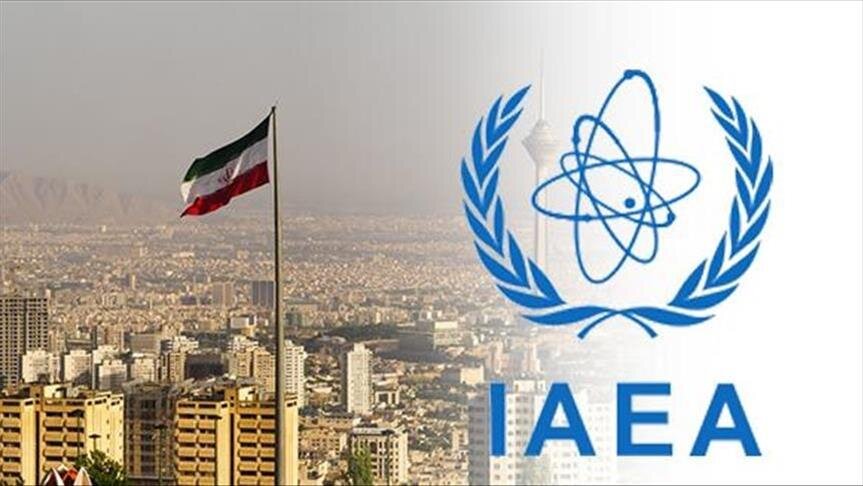In a move that sparked a swift and fiery response from Tehran, which adopted a politically charged resolution that accused the International Atomic Energy Agency (IAEA) of violating its safeguarding obligations on Thursday. Within hours, Iran responded, announcing its expansion of its nuclear program, denounced the resolution as a Western manipulation, and reaffirmed its right to peaceful nuclear energy under the Nuclear Non-Proliferation Treaty (NPT).
The UN nuclear watchdog, the 35th Capitol, passed a resolution declaring Iran for violation of its non-proliferation obligations for the first time in almost 20 years. The political resolution was proposed by the US and European troika.
Iran’s peaceful nuclear program: misrepresented to the West

For over 20 years, Iran has repeatedly argued that its nuclear program is improvised and always peaceful. Citing its obligations under the NPT, Tehran maintains its sovereignty to enrich uranium for civil purposes, including energy production and medical research.
Iran has long opened nuclear facilities for IAEA testing. This allows for transparency measurements under surveillance cameras, regular inspections, and current dormant joint comprehensive action plan (JCPOA), often exceeding legal requirements.
Nevertheless, Iran claims that Western stories continue to portray nuclear activity in an ominous light, ignoring decades of cooperation and continuing to present technical conflicts as intentional obstruction.
Despite recent Western media headlines, Iran’s nuclear agenda remains peaceful. Tehran argues that all enrichment activities are directed towards civilian energy production and medical applications, not arms development. As a signator to the NPT, Iran has argued its legal right to uranium enrichment under international surveillance, and there is no credible evidence of its demand for nuclear armament.
IAEA Resolution: Political Documents in Technical Disguise
The June 12 resolution, introduced and supported by the US, France, Germany and the UK, alleges that Iran failed to provide a reliable explanation of nuclear material found at undeclared sites. These claims date back several years ago, but Western officials used them as grounds to condemn Iran for its lack of transparency.
However, Tehran sees this solution as another example of politicizing technical problems. Iranian officials argue that the IAEA is being exploited as a tool to exert political pressure, especially as negotiations with the US are underway.
Iran’s reaction; decisive and shocking
Iranian officials did not delay the response. Within minutes of adoption of the resolution, Iran’s Atomic Energy Organization (AEOI) announced two major measures.
In addition to Natantz and Fold, the construction of a third uranium enrichment site.
Installing a new generation of IR-6 centrifuges at Fordow, accelerated enrichment capabilities.
Iranian authorities’ response to IAEA resolution

In a joint statement issued minutes after the resolution was adopted, Iran’s Ministry of Foreign Affairs of the Islamic Republic and Iran’s Atomic Energy Agency (AEOI) strongly condemned the resolution.
The statement described the move as politically motivated and legally unfounded exploitation of the IAEA board and lacks technical grounds.
“Iran has always complied with its obligation to protect,” the statement said, stressing that it did not cite violations or diversions in Iran’s nuclear material or activities.
The statement said that while it considers Iran’s report to be completely political and biased, these four countries have gone further, with their central content drafting a resolution that contradicts the same politicized report issued by the director.
The United States, France, Germany and the UK are pursuing their own political agenda and relying on allegations more than 25 years ago, as they do not recognize ambiguity in Iran’s current nuclear activity, and are attempting to re-emphasize some of them despite the fact that all such past claims were closed under the IAEA’s November 2015 resolution.
These actions by the four countries are taking place while silent about the fact that the Zionist regime is not yet a member of the Non-Proliferation Treaty (NPT) and continues to develop weapons of mass destruction programs, including nuclear weapons. They also read that they have not taken action regarding the Israeli regime’s threat to attack peaceful nuclear facilities in NPT countries.
Meanwhile, the US, UK and France have failed to fulfill their obligations under the NPT Article on nuclear disarmament, but Germany continues to host these deadly and inhuman weapons.
“This move by the four countries completely undermines the reliability and reputation of the International Atomic Energy Agency, further exposing the political nature of this international organization.”
“This political treatment of the country, which has always adhered to its commitments and maintained extensive cooperation with the institutions, leads to the opposition of its policies of engagement and cooperation.”
“In this regard, we express our gratitude to the members of the Governor’s Committee who opposed or abstained from the resolution, and condemn and condemn the political action of the country that voted in favor of it.”
“As mentioned before, the Islamic Republic of Iran has no choice but to respond to this political solution,” he concluded.

Behrouz Kamalvandi, a spokesman for Iran’s Atomic Energy Organization (AEOI), has strongly criticized the resolution passed by the IAEA Committee, calling it a strategic miscalculation by the West.
“They mistakenly believe that political pressure can force Iran to retreat from its legitimate position,” Kamalbandi said Thursday. “We had already warned that we would adjust our actions.”
As part of Iran’s response, Kamalbandi announced the activation of the third enriched complex, along with a major upgrade of Iran’s centrifugal system.
“We’re replacing the first generation centrifuge with the sixth generation machine,” he said, adding that uranium enrichment will increase significantly in both volume and efficiency.

A spokesman for the Iranian Ministry of Foreign Affairs strongly condemned the anti-Iranian resolution approved by the IAEA’s board of directors for the peaceful nature of Iran’s nuclear program.
Esmaeil Baghaei condemned the actions of three European countries (UK, France and Germany) and the United States in the use of equipment of the Governor’s Committee of the International Atomic Energy Agency, in order to question the peaceful nature of Iran’s nuclear program.
Baghaei has firmly rejected the unfounded, unfounded claims envisaged in the resolution of the IAEA Committee approved on Thursday under joint proposals from France, the UK, Germany and the US, and according to the IAEA Director’s political report.
He called the adoption of anti-Iran resolutions in the IAEA BOG an unfair, unfounded and cruel move, saying the anti-Iranian solution was approved with the aim of putting maximum pressure on Iran to deviate from the legitimate rights and interests of Iranians in the peaceful use of nuclear energy.
Iranian diplomats attributed the responsibility for the effects and consequences of this unfair and destructive action to the mastermind of the anti-Iranian resolution, and emphasized that the Islamic Republic of Iran will take proportionate steps to respond to this move to secure and protect the interests and inevitable rights of the Iranian state that will benefit from peaceful nuclear energy.
Elsewhere in his remarks, Baguei expressed deep regret over the IAEA Director’s biased performance on Iran’s nuclear issue and the provocative interviews about Iran’s nuclear program.
He pointed out the direct responsibility of the IAEA director for undermining the professional credibility of the agency and called on him to comply with his duties and duties in accordance with the agency’s laws.
He seized the opportunity and gave a thank you to China, Russia, Venezuela, Cuba, Nicaragua and Belarus, issued a joint statement expressing its responsibility and legal status for rejecting the resolution, highlighting the decision of the Iranian state and protecting its rights and interests in accordance with the international charter and non-enhancing treaties.

The Iranian parliament president has said that cooperation with the IAEA backfired and calling Tehran’s measures a legitimate response to the IAEA’s anti-Iran resolution.
Mohammad Bagher Ghalibaf has strongly criticized the anti-Iranian resolution passed by the IAEA Commission, calling it “biased” and a sign that cooperation with the institution will have counterproductive outcomes.
Galibah said the Islamic Republic will respond with solid mutual measures, including the deployment of advanced centrifuges, the launch of new concentration facilities and reduced surveillance.
“The board’s biased resolution shows that cooperation with the IAEA leads to opposition to constructive engagement,” he said.
Gallibah emphasized that Tehran views these steps as a legitimate and sovereign response to the excessive Western demands.

Iran’s nuclear chief announced the launch of a new safe and immortal nuclear facility site, adding that the uranium enrichment process will begin at the new site once the centrifuge is installed and set up is complete.
Mohammad Eslami said Iran will set up a third uranium enrichment facility in a safe location, replacing the first generation centrifuge at the Fordow site with an advanced sixth generation machine.
Speaking Thursday, Eslami stressed that the new measures are part of Iran’s response to political and psychological measures led by the United States and three European countries (Germany, the UK and France), based on the effects of Israeli pressure.
“The new site is fully built and in a safe and immortal location. Concentration will begin as soon as the centrifuge is installed and set up.”
He further criticized the IAEA resolution, but he said he mistakenly accused Iran of failing to meet the JCPOA commitment.

“The Governor’s Committee resolution was a mischievous thing,” Iranian President Masuud Pezeshkian added that Iran will continue to enrich uranium.
Pezeshkian reaffirmed Iran’s resolve to continue its nuclear activities and said that despite the country’s increasing pressure, it would not retreat from its rights to uranium enrichment.
At the public event, Pezeshkian honored the memories of Iranian nuclear martyrs, saying, “We will continue on the path. The enrichment continues and will not retreat from the current trends.”
He emphasized that Iran’s nuclear knowledge is deeply rooted and cannot be eliminated by military action. “Even if they bomb our facilities, our capabilities are in our hearts. Whatever they destroy, we will rebuild.”

Iranian Foreign Minister Abbas Aragut said the anti-Iranian resolution adopted by the IAEA will complicate the process of nuclear talks between Tehran and Washington, scheduled to be held in Muscat on Sunday.
Conclusion
Iran’s sharply calculated response to IAEA resolution highlights one core message. Pressure tactics do not bring submissions. Instead, such a move only strengthens Tehran’s stance that it cannot negotiate sovereignty and the dignity of its people under compulsiveness. By accelerating its nuclear activity and showing a firm rejection of political pressure, Iran makes it clear that attempts to coercion are fulfilled with measured strategic rebellion rather than concessions.
By Mohaddeseh Pakravan

